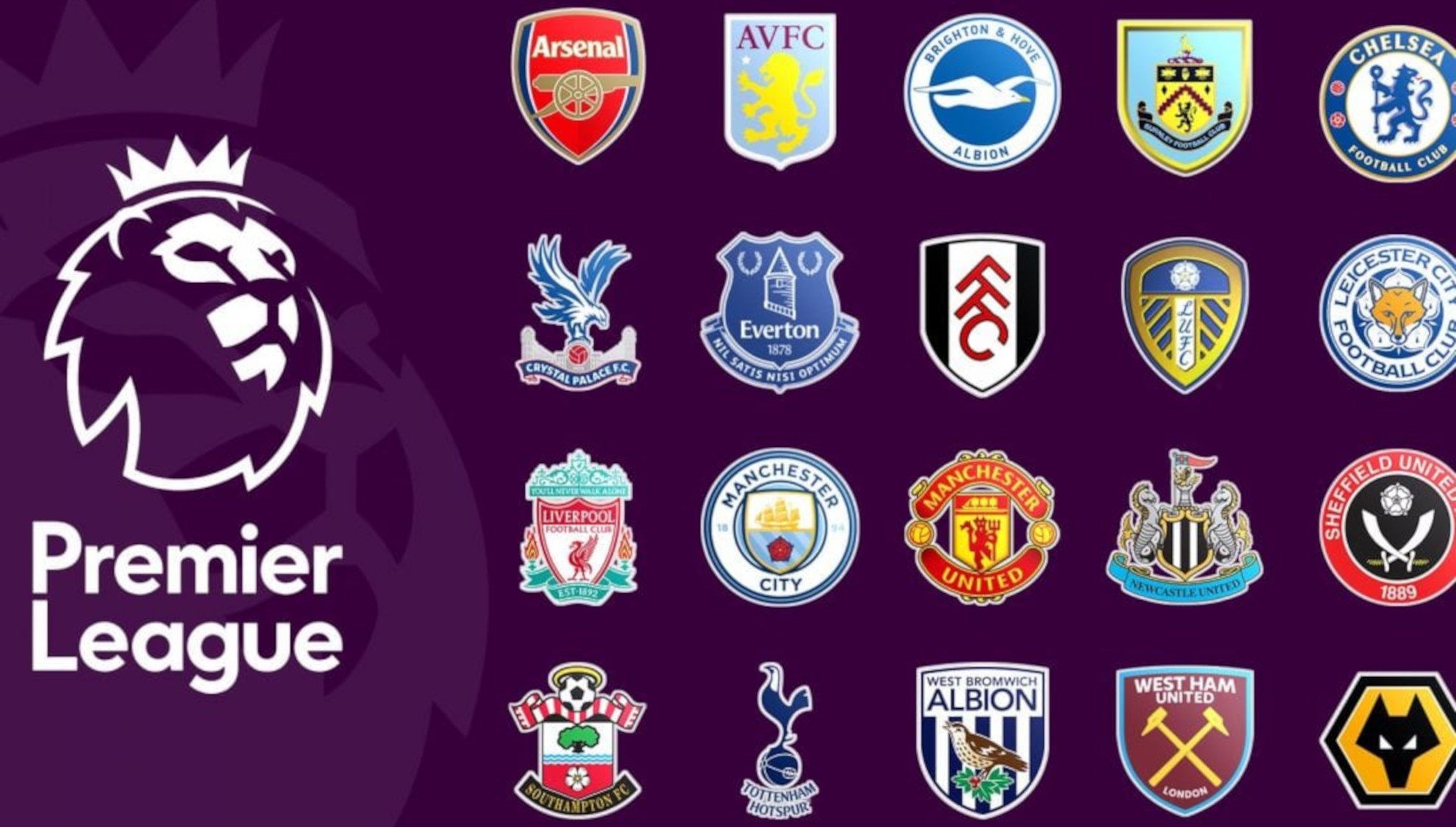8 Things You May Find Confusing About Soccer, Clarified

While it may not be the largest sport in the US right now, the popularity of soccer has really been growing!
Soccer, or as our friends across the pond call it, “football,” is a blast to bet on. But if you are new to the sport or just watch it casually, there are some things you might find confusing about it.
It is important to understand those things, because the more you can wrap your head around soccer, the easier it will be for you to make winning wagers on it.
In this post, we are going to go over some of the top things that you might find confusing about this sport, along with explanations to provide clarification.
That way, you will grasp it better whether you are a casual fan, a new fan, or an American (just kidding, well, not really).
Here is what we will go over in this post:
- Promotion and relegation
- Transfers and loans
- The schedule
- The 90-minute rule
- Ties
- Offside rule
- Cheering when people miss
- The fact that soccer is “football”
Let’s get started!
Promotion And Relegation
If you are an American, one of the most confusing things about soccer abroad can be the system of Promotion and Relegation.
Promotion and relegation is a system whereby teams can rise and fall within leagues. You can see the structure of the league pyramid in the UK below:
- Premier League
- English Football League Championship
- English Football League One
- English Football League Two
- National League
- National League North and National League South
- Northern Premier League Premier Division, Southern Football League Central Division, Southern Football League South Division, and Isthmian League Premier Division
- Northern Premier League Division One East, Northern Premier League Division One Midlands, Northern Premier League Division One West, Isthmian League Division One North, Isthmian League Division One South Central and Isthmian League Division One South East, Southern Football League Division One East, Southern Football League Division One West
Teams move up and down in this structure based on their performance. Rising in the leagues is called “getting promoted.” Falling in the leagues is called “getting relegated.”
Take note that Major League Soccer (MLS) in the US does not participate in relegation and promotion.
What is the Effect of Promotion and Relegation?
There is a lot to like about the system of promotion and relegation. For one thing, it motivates clubs to play as well as they can. If they perform with excellence, they will be rewarded. They will rise in acclaim, receive more press, and be better funded. They also will be able to compete with top teams.
Hypothetically, a club that starts all the way down at the base of the pyramid could be promoted up through the pyramid to the Premier League and end up winning it all. Just the fact that this is possible is amazing.
That being said, it is not a likely outcome, because teams at the bottom are not funded as well as those on top. The fact that every club has a shot at climbing does not mean that every team has an equal chance of success.
That means that just as getting promoted is a reward for playing well, getting regulated is a punishment for sub-par performance.
Teams that get relegated lose financing, press and prestige. They may have a harder time attracting talent, and in some cases, might even run out of money.
If this kind of loss picks up momentum, a team might do worse and worse, falling further and further from grace. Sometimes it could even go flat-out bankrupt. So, while promotion and relegation is exciting, it is not all sunshine and rainbows!
If you hear that a team you are following overseas is “facing possible relegation,” you know they are in dire straits. It often means that if they lose their next match (or next few matches), they might fall to a lower league and face the struggles that come with that reduction in their status.
Could Promotion and Relegation Ever Come to Soccer in the US?
There is a possibility that eventually, we could have the same system of promotion and relegation here that exists abroad. But if so, it is not something we should expect in the near future.
Here is a post on this topic from March 2023. It quotes MLS commissioner Don Garber speaking on the matter:
Garber said, “This is the ‘never say never’ thing. I’ve been pretty consistent on that. We shouldn’t walk away from having the courage to evolve over time. And as the league continues to grow and evolve, and our fanbase and the market continue to grow and evolve, I don’t see any reason why we wouldn’t be thinking about new structures. I don’t see how that works today, but I can’t look far enough in the future to say never.”
As for why it isn’t a reality here, he explains that it comes down to economic differences between what happens here vs. across the pond. “They don’t have to build stadiums on their own dime and then, if they don’t win, all of a sudden they have to play in another league,” said Garber. “{And with no disrespect to any other league — I learned my lesson with comments I made about Chattanooga many many years ago — it doesn’t quite exist today where you can have the economic environment to be able to support promotion and relegation. That might exist at some point in the future, maybe way after I’m no longer the commissioner, but life’s a long time.”
- Key Point
Promotion is when a team moves up through the football hierarchy of leagues and divisions. Relegation is what we call it when a team is demoted down to a lower league/division. Promotion and relegation are a result of a team’s good or poor performance. We do not have promotion and relegation in MLS in the US.

The “Premiere League” teams of the time!
Transfers And Loans
The entire system of Transfers and Loans in Premier League football is another source of confusion among many soccer fans in America.
A lot of people wonder if the words “transfer” and “loan” are interchangeable in this context, but they are not. Here is the difference between them:
Transfer: This is a permanent move from one team to another. The player will remain on that team for as long as their contract is active, or until the club sells them or they decide to retire.
Loan: This is a temporary move. One club literally loans a player to another. The player goes and plays for that other team for a while, and then they are returned back to their parent team. The other team has limited rights with respect to the player they are borrowing. They do not own that player, so they cannot sell them.
That might sound quite strange, and leave you scratching your head. Why would a team loan out a player?
The typical scenario is when a club has a young rookie that they want to gain experience, but strategically, it does not make sense to play that person as often as they need to build that experience.
In that situation, what they do is they loan the player to a team that is further down in the hierarchy. That team can make ample use of the young player, which allows them to finally get that hands-on experience. Then, when the loan is complete, they can bring that experience back. The parent team can then make fuller use of their talents.
Here are a few other situations where you might see a loan:
A player no longer wants to stay with the parent club. Ideally, they would have transferred already, but they could not get it done in time. They choose to be loaned out elsewhere until the next window for transfers.
A team is attempting to bring on a player permanently, but the window closes before the transfer is complete. They negotiate for a loan with the option to buy the player when the next window opens. That way, they can get started playing with them immediately.
While loans often are done to train up young players, sometimes, it is older players who request to be loaned out. The reason is because they are getting less playing time on their parent teams because of their age, while a team lower in the pyramid may be able to make good use of them.
You might sometimes seem loans that are related to salaries in some way.
So, that is what loans are all about. Now you will not mix them up with transfers anymore.
- Key Point:
Loans and transfers are often confused, but they are two different things. A transfer is permanent, whereas a loan is temporary. Loans happen for a variety of reasons, but the most common is for young players to gain more experience.
The Schedule
Now let’s talk about the schedule for soccer. This is something else that tends to generate confusion, both because soccer is a year-round sport, and because there is so much going on at any given time.
The MLS regular season starts in February and runs through October. The playoffs run from October through December. So, MLS is going on pretty much all year.
The Premier League’s schedule also takes up almost the entire year. There are 38 league games for every team, but that does not translate to 38 weeks. There are tournaments, international breaks and other events that break up that season.
On top of that, it is important to remember that MLS and the Premier League are hardly the only soccer leagues you can follow; there are plenty more around the world that play exciting matches. Depending on where they are located, their seasons span different months.
As a result, no matter what time of year it is, chances are good you can find at least some leagues that are active. There is always something for you to bet on.
- Key Point
Football/soccer is truly a year-round sport. While there are a lot of matches to keep track of, there is also an abundance of opportunity for sports bettors.

You may want to get an old-school calendar to start marking off those games you want to keep track of!
The 90 Minute Rule
Something else that may come up when you are betting that might throw you off is what is called the “90-Minute Rule.”
The 90-minute rule determines how bets are settled at an individual sportsbook based on how long the match has run.
To make sense of 90-minute rules, you need to understand the different types of time involved in a soccer/football match:
- Regulation time:
- Injury time:
- Extra time:
This refers to the 90 minutes of regular time in a soccer match. Each half is 45 minutes.
Also referred to as “stoppage time” or “additional” time or “added time,” injury time is tacked on by the referee. As these names suggest, this is done in response to injuries or stoppages. Some other things that might prompt stoppage time to be added include substitutions, disciplinary issues, VAR checks, etc. Sometimes the referee will even add this type of time if too much time seems to be wasted by the players when celebrating their goals, etc.
The phrase “extra” time sounds like it means the same thing as added time/injury time, but it does not. It only comes into play in knockout matches. Extra time is always 30 minutes long, split between two halves each lasting 15 minutes. Its purpose is to provide enough time to break a tie. The reason you do not see extra time outside of these late tournament matches is because in general, ties are just fine in soccer (more on that shortly).
Now that we have laid that groundwork, let’s circle back to explaining 90-minute rules when betting.
The 90-minute rule answers the question, “How are extra time and injury time considered when settling my bet?”
The most common form the 90-minute rule takes is this:
- What happens during injury time is counted toward settlement of your bets
- What happens during extra time is not counted toward settlement of your bets
Understandably, this can cause a lot of confusion for a bettor who either is not aware of the rule, or does not understand the difference between injury time and extra time.
In fact, a lot of bettors first discover the existence of this rule when things do not go as they expect. Maybe you wager on a team to win a match, and they do win it—but the winning goal happens in extra time. You are then shocked when your bet does not win. Only after looking up your sportsbook’s rule do you understand why you did not win your bet.
Why do you need to check the 90-minute rule at your sportsbook? Even though what we just discussed above is the most common 90-minute rule, it is not the only one. Some sites do it differently, or set different rules for different types of wagers. With props especially, extra time does sometimes count.
- Key Point
The 90-minute rule is set by your sportsbook, and tells you how injury time and extra time will impact your bet results. The most common rule counts injury time, but not extra time.
Ties

Better start getting used to ties ’cause you’re going to be seeing a lot them!
Another thing about soccer that new and casual fans have a hard time wrapping their heads around is the fact that soccer can and often does end in a tie.
This is very different from NFL football, for example (ties do happen in NFL, but they are rare). Indeed, many American football fans ask repeatedly why soccer allows ties at all. After all, the rule could simply be changed to remove ties from the equation so that there is always a winner and a loser for a soccer match.
There are two answers to this question:
- That is just how it is done
- The scoring system is structured around how it is done
Let’s start with discussing the first point. Why is it done the way it is?
Well, there are a lot of possible answers to this question, and ultimately, it is a really subjective thing. But here are the ways that a match could be decided if we didn’t want ties:
- The match could simply continue in some sort of overtime until a winner is determined
- A penalty shootout could determine the winner
The first idea is problematic because it might take a very long time to get a winner. A lot of people are just not going to want to sit through that, and it would also fatigue the players.
Some people might be fine with the penalty shootout idea, but there is a high degree of luck involved. If a team wins with a penalty kick after 90 minutes of basically playing about as well as the other team, the victory feels a bit hollow. Is that team really the better team? Maybe, maybe not. The penalty kick proves nothing.
If a knockout match in soccer ends with a tie in extra time, a penalty shootout does end up determining the winner. After all, since it is a knockout match, a winner must be chosen somehow; they cannot settle on a tie. But you can see why this is a kind of last resort.
Here is an interesting idea we saw proposed as an alternative (this does not happen right now in knockout matches or regular matches): Instead of the penalty shootout happening after extra time, it could take place before extra time. So what would happen is this:
- The match ends in a tie after regulation time runs out
- The penalty shootout takes place and one of the teams wins the shootout
- Now, the teams play the extra time
- If a team wins in extra time, that team wins the whole match
- If there is a tie in extra time, then the winner of the shootout wins the match
Why would this potentially be better? The reason is that it creates a much more intense situation where even after a shootout, there is still a chance to win a match for the loser of the shootout. Imagine how hard a team would play if the players knew that by default, they lose the match unless they can pull off a victory in extra time. The team that won the shootout will thus need to play harder as well, because they still have the potential to lose the match against a highly motivated opponent.
This would seem a more satisfying way to conduct knockout matches. It also might make for a feasible way to play regular season matches that avoid ties as well. But again, this is not the way things work at present.
Plus, as we mentioned before, there is the scoring system to consider, which is well-established. In both MLS and the Premier League, points work like this:
Win: 3 points
Tie: 1 point
Lose: 0 points
Those tie points can add up over the course of a soccer season. If we were to remove tying from the sport, the entire point system would need to be redone.
People who grew up watching soccer their whole lives are used to ties, and generally are not bothered by them. There is not a lot of motivation to get rid of them.
Once you follow soccer for a while, you will also probably get used to ties, and no longer find them confusing or annoying.
- Key Point:
There are a lot of ties in soccer. As it stands, most long-term soccer fans do not find this unusual or problematic, and the current scoring system is constructed around it. This is something you might have to get used to, but it is not necessarily inferior to a system that avoids ties.
And for some of the best action you’re going to find for betting on Soccer, go and check out Everygame where you can get a Welcome Bonus of up to $750 with the promo code 3XBOOST250!
Offside Rule
Ask a random person what they find confusing about soccer, and there is a good chance they will answer, “the offside rule.” Let’s go ahead and explain what the offside rule is and how it works.
The offside rule has been around since 1883. The Olympics explains it pretty succinctly, so let’s just borrow their explanation:
“Simply put, the offside rule mandates that during a move, an attacking player, when in the opposition half, must have at least two opposition players, including the goalkeeper, between him and the opposition goal when a pass is being played to him.”
When an attacking player in the opposition half receiving a pass is not positioned accordingly, then they are in an “offside position.”
The referee will stop play when this happens and award the defending team a free kick.
The offside rule is in play most of the time, including during corner kicks and free kicks. But it does not apply during a throw-in.
You might be reading this wondering what the point of the offside rule is. Understanding the reason it exists may help you to grasp it more fully.
Basically, if the offside rule did not exist, it would be too easy for an attacking team to kick a long ball into the opposition goal area.
The offside rule creates a deliberate roadblock to this technique, which in turn forces teams to rely on more interesting and complex strategies. In short, the offside rule helps keep the sport of soccer interesting.
- Key Point:
The offside rule specifies that an attacking player receiving a pass in the opposition half must do so with two or more opposition players between him and the goal. While this rule may seem complicated, it exists to make the sport more interesting.
Cheering When People Miss
Sometimes when a soccer team misses a goal, you will notice that team’s fans cheer. This might strike you as unusual. Why cheer when things go badly?
The reason is that soccer fans tend to have a good attitude, and be supportive of a team’s efforts even when the results are not ideal. So, they are cheering the team for making a solid attempt.
As any sports fan knows, there is way too much toxicity in the average fan base, and that is true across pretty much every sport.
So, it is actually really refreshing that soccer fans go out of their way to stay positive and loyal.
- Key Point:
Soccer fans sometimes cheer when their team misses. This may be unexpected to fans of sports where this is uncommon, but the point of it is to show support for a team that tries hard, even when it fails.
The Fact That Soccer Is “Football”

You already know that it’s not this one!
Finally, one more thing that American soccer fans tend to feel confused about is why everyone else in the world calls this sport “football” or “futbol.”
Well, most of the rest of the world is asking the same question in reverse, wondering why we call football “soccer.”
As it turns out, the answer is highly ironic, because “soccer” is a name that comes from the UK.
In fact, the name “soccer” is derived from “association” in “association football.”
Initially, the word “soccer” was used by students in British schools.
Naturally, American players also started referring to the sport as “soccer.” That is when things started getting silly.
This post references Stefan Szymanski, professor of sport management at the University of Michigan, as explaining, “When it became widely known in the UK that Americans called it soccer, it suddenly becomes what we call an ‘exile word’ in British English.”
Indeed, he even said the motivation for switching away from the word “soccer” in the UK was “anti-Americanism.”
This is pretty funny, when you think about it. There is often a perception that Americans are a bunch of snobs for refusing to call “football” by its proper name. But in actuality, the real snobbery was when a bunch of British people back in the day decided they could no longer bear to call the sport “soccer” since Americans were doing it.
Of course, if we were going to suddenly stop calling the sport “soccer” now and begin calling it “football,” that would lead to confusion between association football and NFL football. We would need to reference both by their full names constantly.
But as you can see now, this is really unnecessary. Americans might be the only ones on the planet calling this sport “soccer,” but it is hardly their faults. The folks across the pond created this whole mess. The name “soccer” is every bit as legitimate as the name “football” when referencing this sport. So, don’t feel bad about using it!
- Key Point:
The term “soccer” comes from the UK. Ironically, people there switched to calling the sport “football” because Americans also started calling it soccer. Now, only Americans call it soccer. The rest of the world continues to call it “football.” But both terms are just fine to use.
Bet on Soccer Now
Having read through this entire post, you should now have answers to many of your questions about soccer, and be a lot less confused about concepts like the offside rule, promotion and relegation, and transfers and loans.
The more time you spend following different leagues and betting on soccer, the less confusing the sport will be to you.
Ready to start wagering on this exciting year-round sport? Check out in-depth reviews of our recommended sportsbooks for soccer betting!
And Make Sure That You Check Out These Pages As Well


